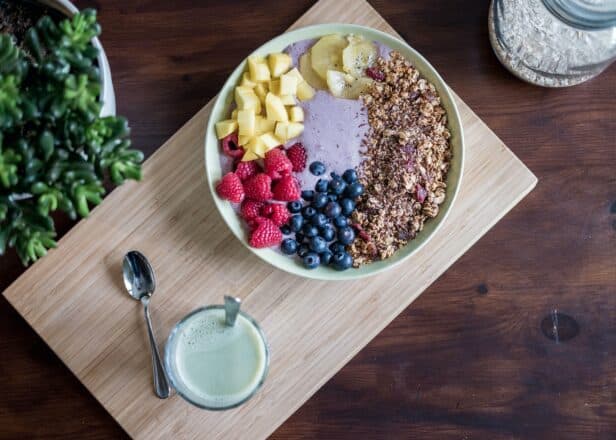Fulfilling an essential role in our society, Home Health Aides (HHAs) provide astonishing support to those aiming to maintain their independence while remaining within the comforts of their own abode. They assist with daily activities, encompassing everything from personal care—bathing, grooming, and dressing—to light housekeeping, ensuring a safe, clean and homely environment.
Being an HHA isn’t just about ticking tasks off a checklist, but also about bringing companionship into the lives of their clients, nurturing their mental and physical health through social interactions. HHAs may work in shifts, customized to the requirements of the client, demonstrating flexibility and dedication to their role. As a reflection of their invaluable contributions, the demand for HHAs continues to grow, promising a positive projection for job opportunities in the sector.
Understanding the Role of Home Health Aides
Home Health Aides (HHAs) are an integral part of the healthcare system, ensuring that individuals can remain independent and comfortable in their own homes.
Defined responsibilities of HHAs
As an HHA, your primary responsibility is to assist clients with their everyday activities, from personal care to light housekeeping, ensuring they live in a clean and safe environment. Essentially, your role is to make their daily living more manageable and comfortable.
Helping clients with physical mobility
Not all clients will have the same physical abilities, and it’s part of your job to help them move around their home. Whether this means assisting them with walking or helping them transfer to a wheelchair, your support is vital in improving their mobility and independence.
Offering companionship and emotional support
One of the most underappreciated roles of an HHA is the emotional and social support you can provide. Companionship goes a long way in improving the overall health of your clients – especially among older adults who may be more prone to feelings of loneliness and isolation.
Variety in shift hours for HHAs
Your working hours can vary widely based on the needs of your clients. Whether you’re needed for a short two-hour shift or a full eight-hour shift, your flexibility can make a significant difference in the lives of those you’re caring for.
Activities of Daily Living (ADLs) Management
Being an HHA means helping clients with their daily living activities – this is what the industry refers to as Activities of Daily Living (ADLs).
Assisting with personal hygiene and grooming
From bathing to grooming, maintaining personal hygiene is often an important part of an HHA’s duties. This can range from brushing their hair to trimming their nails – essentially, any personal care task that your client may struggle with.
Helping with toilet use and incontinence issues
Part of ensuring a client’s dignity and comfort is assisting with toileting and addressing any incontinence issues. This can include helping them get to the toilet, changing incontinence pads or cleaning up any accidents.
Supporting outfit selection and dressing
Another important ADL is clothing selection and dressing. Depending on the physical ability of your client, you may be needed to help them choose an outfit, put on their clothes, or assist with their shoes.

Home Health Aides in the Kitchen
Meal preparation and kitchen tasks are another crucial part of an HHA’s responsibility.
Meal preparation assistance
From cutting up ingredients to stirring the pot, many clients may need help preparing their meals, especially if they have conditions like arthritis or paralysis that limit their movements.
Navigating kitchen-related challenges due to health conditions
Health conditions can present unique challenges in the kitchen, and it can be part of your duty to mitigate these. This can include rearranging cupboards for easier access or modifying cooking methods for safety.
Involving clients in kitchen activities when possible
When possible, encourage your clients to get involved in the kitchen. This can be a natural form of occupational therapy, boost their self-confidence and maintain their sense of independence.
Light Housekeeping Duties of HHAs
Creating a clean, safe, and inviting home environment is another essential role of HHAs.
Maintain a clean and safe living environment
Your tasks may include sweeping, washing dishes, and dusting – anything to ensure the living space is clean and safe for your client.
Assist with laundry and other tasks
Clothes washing, ironing, and other laundry tasks may also be part of your job. This can extend to helping your client sort their wardrobe or change their bed linens.
Manage waste disposal and recycling
You’re also responsible for making sure waste and recycling are properly managed, whether it’s taking out trash bags or sorting out recyclables.

HHAs and Medication Management
Keeping track of medications can be a significant challenge for many clients.
Reminding clients to take medications
Simple reminders to take pills at the right times can be an important part of your duty as an HHA.
Procurement of prescriptions from pharmacies
Some clients may need help getting their prescriptions filled. In such cases, picking up medications from the pharmacy would be among your responsibilities.
Ensuring correct medication dosage
Ensuring that your client takes the correct medication dosage is also crucial. This can mean paying attention to the prescription labels, organizing medications in a pill box, or helping them understand their doctor’s instructions.
The Importance of Companionship
Companionship is a key aspect of an HHA’s role.
The role of HHAs in providing companionship
Offering companionship means engaging your client in conversation, listening to their stories, sharing in their hobbies, and treating them like a friend or family member rather than just a client.
Advancing social connections for clients
You can help your clients increase their social connections too. This can involve facilitating video calls with their families, helping them go to social outings, or even just providing company while watching their favorite show.
Benefits of companionship in overall health
Providing companionship can significantly benefit a client’s overall health. It can lessen feelings of isolation, improve mood, promote cognitive health, and even increase lifespan.

Ensuring Independence Through Mobility Assistance
Helping clients maintain their autonomy as much as possible is vital.
Aiding movement with a cane or walker
If your client uses a cane or walker, you need to be trained in how to assist them effectively and safely.
Assisting with wheelchair transfers
For clients who use a wheelchair, transfers can be challenging. Knowing how to properly assist with this can improve their mobility and independence.
Promoting physical therapy exercises
Finally, you could be asked to assist with or encourage the completion of prescribed physical therapy exercises. This can help improve your client’s strength, mobility, and overall wellness.
Catering to Specific Client Needs
Every client is unique, and this impacts the care they need.
Adapting to different health conditions
Different health conditions can require different care techniques. Whether your client has Alzheimer’s, diabetes, or a physical disability, you’ll need to adapt your care accordingly.
Handling individual dietary requirements
You’ll also need to respect your client’s dietary needs and preferences. This could mean preparing low-sodium meals, ensuring they’re getting enough fiber, or avoiding food allergens.
Respecting clients’ personal and cultural preferences
Some clients might have specific personal or cultural practices they follow. As an HHA, it’s your responsibility to respect these and incorporate them into your care strategy.
The Increasing Demand for HHAs
As the population ages, the need for HHAs is predicted to grow significantly.
The growing need for home health care services
With more people wanting to age in place, the need for home health care services is rapidly increasing.
Bureau of Labor Statistics predictions on HHA jobs growth
The Bureau of Labor Statistics predicts a 41% increase in HHA jobs by 2026, evidence of the growing demand for professional home care services.
Factors influencing the increased demand of HHAs
Factors like the aging baby boomer population, improved medical techniques prolonging lives, and increased preference for home care are all contributing to the heightened demand for HHAs.
The Role of HHAs in Fostering Independent Living
HHAs play a huge part in enabling independent living for clients in their homes.
Extending high quality of life at home
By providing personalized, in-home care, HHAs can extend the quality and duration of their clients’ independent living.
Maintaining independence and dignity for clients
Perhaps most importantly, HHAs can support their clients in retaining their dignity and independence. This support can make a meaningful difference in their client’s life, reinforcing their sense of self and ability to make their own choices.
The significant value of HHAs in home health care
Home health aides offer immense value to the home health care sector. Their work allows people to maintain their quality of life within their beloved home environments, making the aging process more comfortable and dignified. Finally, the inclusive and respectful care provided by HHAs often extends beyond their clients, offering peace of mind to family members who can be certain their loved one is receiving exceptional care. The role of HHAs thus extends to supporting family systems and contributing positively to the community at large.
